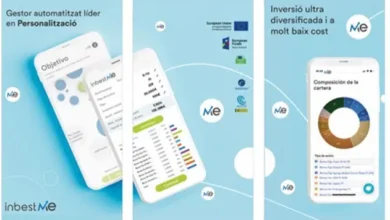A Practical Guide for African Residents Buying Property in Europe

For many Africans, the allure of owning property in Europe extends beyond mere investment; it represents a tangible asset in a stable economy, a gateway to diverse opportunities, or a cherished second home. From the bustling streets of Lisbon to the serene coasts of Greece, European real estate offers a compelling proposition. However, navigating the complexities of international property acquisition from an African base requires careful planning, adherence to regulations, and expert guidance.
This article provides a comprehensive overview for African residents looking to invest in the European property market, covering legal frameworks, financing options, tax implications, and essential due diligence.
Why Europe? The Appeal for African Investors
Europe’s real estate market presents several attractive features for African investors:
- Economic Stability: Many European economies offer a degree of stability and predictability that can be appealing, especially for those seeking to diversify their wealth beyond their home country.
- Strong Rental Yields and Capital Appreciation: Popular tourist destinations and growing urban centres often provide robust rental income potential and long-term capital appreciation.
- Gateway to Residency: Several European countries offer “Golden Visa” or “Residency by Investment” programmes, granting residency permits in exchange for property investments. This can be a significant draw for those seeking greater global mobility.
- Lifestyle and Education: For those considering a second home or a base for family members, Europe offers a high quality of life, excellent healthcare, and world-class educational institutions.
- Currency Hedge: Investing in Euro-denominated assets can act as a hedge against potential depreciation of African currencies.
Navigating the Legal Landscape: Key Considerations
Buying property in Europe as a non-EU resident involves a specific set of legal requirements that vary by country.
- Non-EU Citizen Restrictions: While generally permissible, non-EU citizens might face certain limitations or require specific permits, especially for agricultural land, coastal properties, or areas near military installations. It’s crucial to research the specific rules of your chosen European country.
- Golden Visa Programmes: Countries like Greece, Hungary, Malta, Cyprus, and Spain have established Golden Visa schemes that offer residency in exchange for a significant real estate investment. These programmes typically have minimum investment thresholds (e.g., €250,000 in Greece, €300,000 in Cyprus, €375,000 in Malta) and specific conditions. While some countries, like Portugal, have phased out real estate as the primary Golden Visa investment route, it remains a viable option in others. These can provide Schengen visa-free travel and, eventually, a path to citizenship.
- Local Expertise is Paramount: Engaging a local real estate agent and, most importantly, a qualified independent lawyer (or “notaire” in some countries like France) in your target European country is non-negotiable. They will:
- Understand Local Laws: Navigate the intricacies of property ownership, zoning laws, and contractual agreements specific to that region.
- Conduct Due Diligence: Verify title deeds, check for encumbrances (liens, mortgages), ensure compliance with building codes, and review permits and certifications. This is vital to avoid future legal headaches.
- Assist with Contracts: Translate and explain complex legal documents, such as the “Compromis de Vente” (preliminary contract) in France, ensuring you understand all clauses and conditions.
- Handle Registration: Oversee the registration of the property title with the relevant land registry.
- Foreigner Identification Number (NIE/NIF): In many European countries (e.g., Spain, Portugal), you will need a Foreigner Identification Number (NIE in Spain, NIF in Portugal) to conduct any financial transaction, including property purchase. Your lawyer can assist with this application.
- Proof of Funds and Anti-Money Laundering (AML): European financial institutions and legal entities are bound by strict AML regulations. You will be required to provide clear and verifiable proof of the legitimate source of your funds for the property purchase. This typically involves bank statements, tax returns, and other financial documentation from your home country.
Financing Your European Dream: Funding Options
Securing financing for a European property from Africa can be done through several avenues:
- Cash Purchase: If you have sufficient liquid funds, an outright cash purchase simplifies the process considerably. It eliminates mortgage applications, interest payments, and can give you stronger bargaining power. However, ensure you have a robust currency exchange strategy (discussed below).
- Mortgage from European Banks: European banks may offer mortgages to non-residents, but the terms can differ.
- Loan-to-Value (LTV) Ratios: Non-residents often face lower LTV ratios (e.g., 50-70% of the property value), meaning you’ll need a larger down payment.
- Documentation: Expect extensive documentation requirements, including audited financial statements, proof of income, and details of existing debts.
- Interest Rates: Both fixed and variable interest rate mortgages are generally available.
- Local Bank Relationships: Establishing a banking relationship with a local European bank can be beneficial.
- Mortgage from African Banks (International Branches): Some African banks with international branches or partnerships might offer financing for overseas properties. This can sometimes streamline the process as they may be more familiar with your financial history.
- Equity Release: If you own property in Africa, you could explore releasing equity from those assets to fund your European purchase. This involves remortgaging your existing property.
- Developer Financing: For new developments, some developers may offer direct financing options, often with competitive rates and flexible payment schedules.
Important Note on Currency Exchange: When transferring large sums of money for a property purchase, currency exchange rates can significantly impact the final cost.
- Fluctuations: Exchange rates fluctuate constantly.
- Specialist FX Brokers: Consider using a specialist foreign exchange broker rather than a traditional bank. They often offer more competitive rates, lower fees, and tailored solutions.
- Tools: Utilise tools like forward contracts (to lock in an exchange rate for a future date), spot contracts (for immediate transfers), and rate alerts to optimise your currency transfers.
Taxation: Understanding Your Obligations
Tax implications are a critical aspect that African investors must fully understand to avoid unexpected costs. These include:
- Property Transfer Tax: A one-time tax paid upon the acquisition of the property, varying significantly by country and even by region within a country (e.g., 6-10% in Spain, 7-8% in France including notary fees).
- Value Added Tax (VAT): Applicable to new properties in some countries.
- Annual Property Tax: A recurring tax based on the property’s assessed value, payable to local authorities.
- Rental Income Tax: If you intend to rent out your property, you will likely be subject to income tax on the rental earnings in the European country. Non-resident income tax rates can vary.
- Capital Gains Tax: If you sell the property, you may be liable for capital gains tax on any profit made. The rate and exemptions vary.
- Inheritance Tax: Estate planning for your European property is crucial. Inheritance tax laws differ vastly between countries and can be complex, especially with cross-border assets.
- Double Taxation Agreements (DTAs): Many European countries have DTAs with African nations. These agreements aim to prevent you from being taxed twice on the same income or asset (once in Europe and once in your home country). It’s essential to consult a tax advisor specialising in international property to understand how DTAs apply to your specific situation.
- FATCA and CRS: The Foreign Account Tax Compliance Act (FATCA) and the Common Reporting Standard (CRS) are international agreements designed to combat tax evasion. Financial institutions in Europe will report financial account information of non-residents to their respective tax authorities, which may then share this information with your home country’s tax authorities (e.g., SARS in South Africa). This means your overseas assets will likely be visible to your home tax authority, necessitating full compliance.
Essential Due Diligence and Practical Steps
Beyond the legal and financial aspects, successful property acquisition requires thorough due diligence:
- Define Your Investment Goals: Are you buying for rental income, capital appreciation, a holiday home, or a pathway to residency? Your objective will guide your property search.
- Location, Location, Location: Research specific regions and cities within Europe. Consider factors like economic growth, tourism trends, infrastructure, amenities, and future development plans. Popular choices for African investors include:
- Portugal: Historically strong Golden Visa programme (though real estate route is limited now), stable market, attractive lifestyle.
- Spain: Diverse regions, strong tourism, vibrant culture, and some areas with attractive rental yields (e.g., Costa del Sol, Valencia, Malaga).
- Greece: Affordable Golden Visa (lowest minimum investment), strong recovery, high rental yields in Athens and islands.
- Malta: EU membership, stable economy, and attractive residency pathways.
- Germany: One of Europe’s strongest economies, stable property market, strong rental demand in major cities.
- Visit the Property: If possible, visit the property in person. This allows you to assess its condition, the surrounding neighbourhood, and local amenities. If a physical visit isn’t feasible, rely heavily on reputable local agents and digital tools for virtual tours and detailed photos.
- Professional Surveys and Inspections: Always commission an independent property survey or inspection to uncover any hidden structural issues, dampness, or other problems that could lead to costly repairs down the line.
- Property Management: If you don’t plan to reside in the property full-time, consider hiring a reputable local property management company. They can handle rentals, maintenance, and administrative tasks, ensuring your investment is well-looked after.
- Insurance: Secure appropriate property insurance to protect against unforeseen events like natural disasters, damage, and liability.
The Road Ahead
Buying property in Europe as an African resident is a significant undertaking that requires careful planning, professional advice, and a clear understanding of the regulatory landscape. While the process can be complex, the potential rewards – from wealth diversification and stable returns to enhanced global mobility and lifestyle opportunities – make it a journey worth pursuing. By taking a methodical approach and leveraging expert guidance, your European property dream can become a tangible reality.
Source: Thepressradio.com





